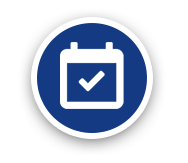Even when you sleep, your mind can be active—and sometimes, your body can be, too. Unfortunately, not all sleep events are pleasant. Parasomnias, or undesirable sleep-related experiences, can be frightening for both you and those around you.
Parasomnias don’t always cause serious problems. But when they’re disturbing or interfere with sleep, you may benefit from the expertise of experienced sleep medicine specialists. You’ll find them at Emory Sleep Center.



